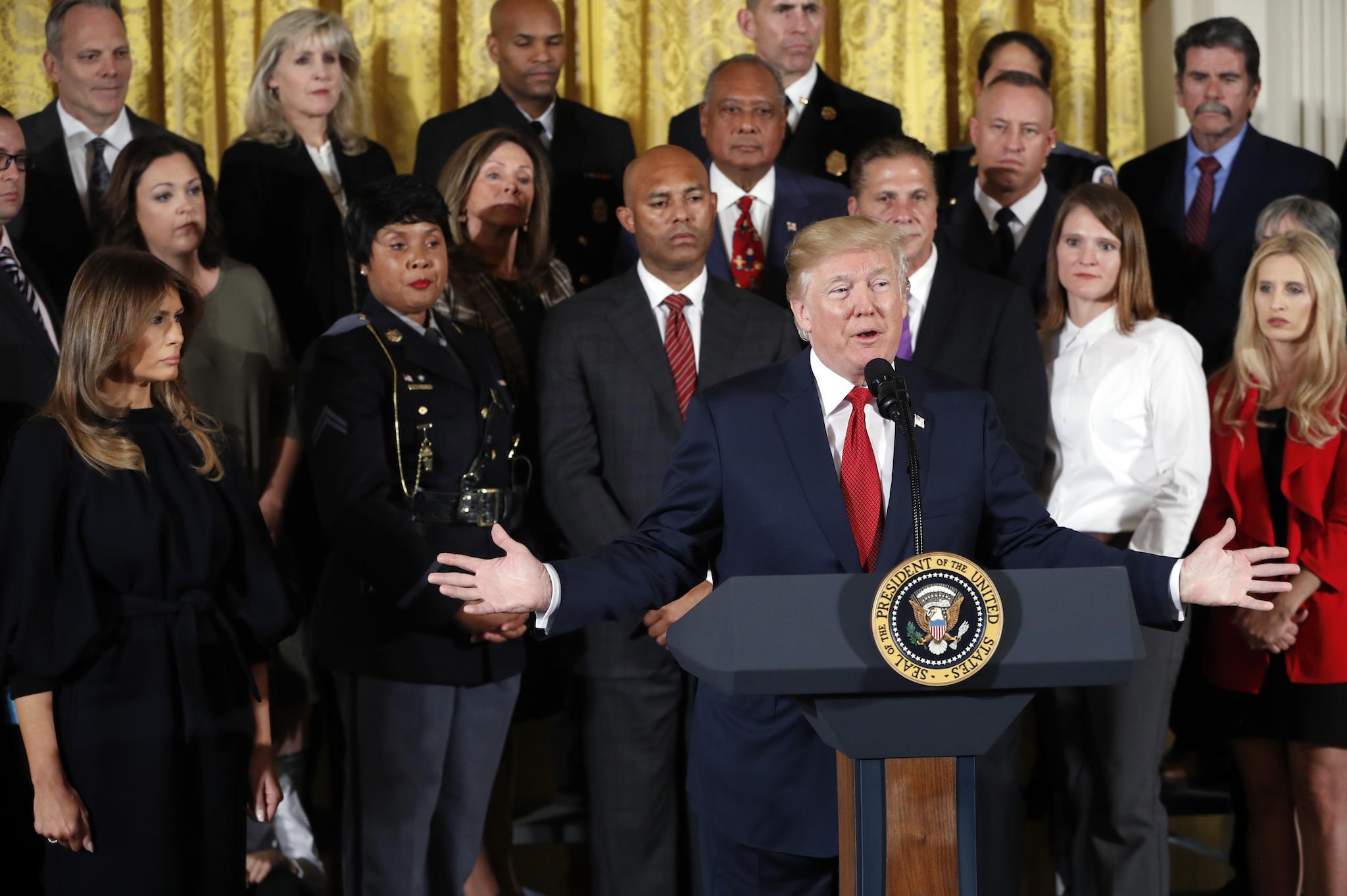Donald Trump declares the opioid crisis a 'public health emergency'
'We can be the generation that ends the opioid epidemic', the President said

Your support helps us to tell the story
From reproductive rights to climate change to Big Tech, The Independent is on the ground when the story is developing. Whether it's investigating the financials of Elon Musk's pro-Trump PAC or producing our latest documentary, 'The A Word', which shines a light on the American women fighting for reproductive rights, we know how important it is to parse out the facts from the messaging.
At such a critical moment in US history, we need reporters on the ground. Your donation allows us to keep sending journalists to speak to both sides of the story.
The Independent is trusted by Americans across the entire political spectrum. And unlike many other quality news outlets, we choose not to lock Americans out of our reporting and analysis with paywalls. We believe quality journalism should be available to everyone, paid for by those who can afford it.
Your support makes all the difference.President Donald Trump has declared the opioid addiction crisis a “public health emergency”, which will free up some federal funds for treatments and ease certain laws and regulations.
“We can be the generation that ends the opioid epidemic,” Mr Trump said in a wide-ranging speech at the White House. “We can do it.”
More than 64,000 people died in 2016 from drug overdoses, the majority of which were linked to opioids, according to the Centers for Disease Control and Prevention.
During his remarks in the East Room, Mr Trump said he was directing federal agencies to use all of their resources to fight the drug crisis, including focusing on providing improved treatment for addicts.
His speech also included a personal touch: At one point, the president went off-script to tell the story of his older brother Fred, who died of alcoholism.
“He'd tell me don't drink,” Trump said in the emotional aside. “He was a strong guy but it was a tough, tough thing that he was going through. But I learned because of Fred.”
Along with discussing how the US could prevent people from ever starting to use drugs, the President also exclaimed why the country needs a wall along its southern border.
“An astonishing 90 per cent of the heroin in America comes from south of the border where we will be building a wall,” Mr Trump said. Several drug trade and policy experts have expressed scepticism about whether constructing a barrier will actually lead to a reduction in drug smuggling.
The President’s long-anticipated directive on Thursday is aimed at fulfilling his promise to tackle the opioid epidemic, which the administration has up until now taken limited action to address.
But the move falls short of declaring a national emergency on the crisis, even though Mr Trump had said in August that he would do that. Such an action would have released additional emergency funding and federal authority to take urgent action on opioids.
The administration determined that declaring a public health emergency was more appropriate than a national emergency, a senior official said.
Earlier this year, Mr Trump established a commission to study the opioid crisis, headed by New Jersey Governor Chris Christie. In an interim report, the commission recommended that the President declare a national emergency under either the Public Health Service Act or the Stafford Act. Doing so, the commission said, could free up funds for treatment, ensure wider access to the anti-overdose drug naloxone and improve monitoring of opioid prescriptions to prevent abuse.
Public health emergencies expire after 90 days and can be renewed. The designation gives the administration access to the Public Health Emergency Fund, but that fund is almost empty.
Senior administration officials said they were speaking with Congress to receive more funding.
They also said their plan would expand access to telemedicine services, giving doctors the ability to prescribe medications to treat addiction to those in remote locations. It would also speed up the hiring process for medical professionals working on opioids and allows funds in programs for dislocated workers and people with HIV/AIDS to be used to treat their addictions.
There is currently uncertainty over how Mr Trump’s policy will be implemented, given how he has yet to name the key players who will be carrying out.
The President’s Secretary of Health and Human Services, Tom Price, resigned last month after it was revealed he was flying on private jets that were paid for by taxpayer dollars. The White House still has not nominated someone to fill the post, who would responsible for tailoring policies and identifying funding streams to address the crisis.
There is also currently no nominee to lead the Office of National Drug Control Policy. Mr Trump’s original pick for the position, Republican Representative Tom Marino, withdrew his name from consideration after reports that the legislator damaged the US's efforts to counter a prescription painkiller epidemic.
A senior administration official said it is an “urgent priority” to fill these roles.
Join our commenting forum
Join thought-provoking conversations, follow other Independent readers and see their replies
Comments